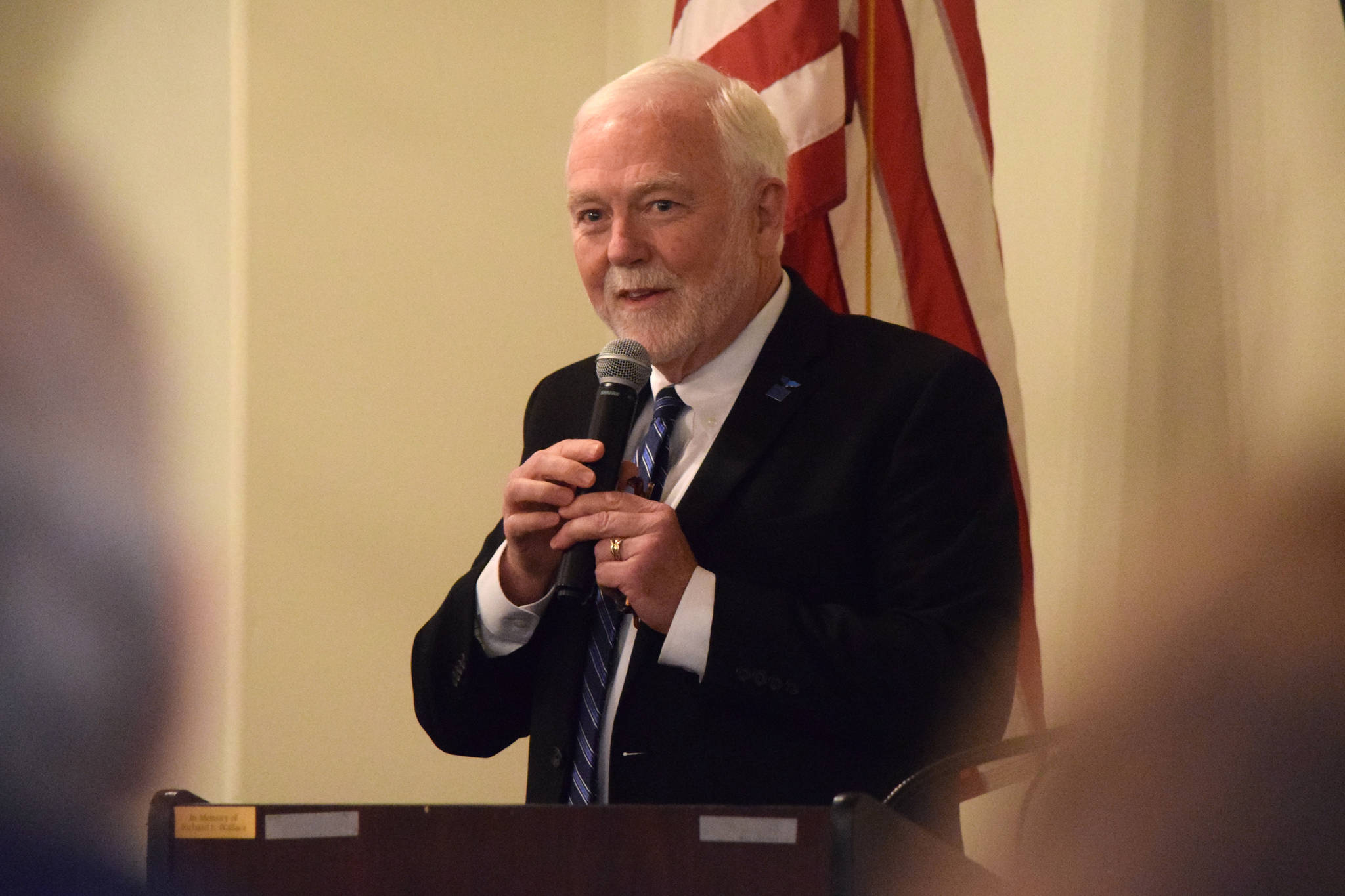University of Alaska Southeast Chancellor Rick Caulfield shared good news with the Juneau Chamber of Commerce Thursday: The number of new students is rising, and progress is proceeding on a new laboratory on the shores of Auke Bay.
In a 40-minute presentation at the chamber’s weekly luncheon, Caulfield said the number of new students at the university is up by 10 percent this fall when compared to the 2017-2018 academic year.
“In a way, we’re trying to reverse the brain drain,” he said.
That increase comes with a caveat: Overall enrollment is down 3 percent because the number of departing students is greater than the number of arriving ones. That decline is the lowest among the University of Alaska network, however. The Anchorage and Fairbanks schools each posted larger enrollment declines.
“We’ve seen some downturns in our enrollments overall,” Caulfield said.
According to Caulfield’s figures, the University of Alaska Southeast now has 2,676 students spread across its Ketchikan, Sitka and Juneau campuses.
Fully two-thirds of its students are women, he said, and the university’s median age, 26, is much higher than normal because the university accepts so many nontraditional students. Those include people who are resuming a college career after dropping out of school for a time, or people who start college after beginning a vocation.
According to figures from the Alaska Commission on Postsecondary Education, Alaska has a greater proportion of residents with some college and no degree than any other state. That proportion is 27.1 percent. Nineteen percent of the state’s residents have a bachelor’s degree, No. 26 among the states.
Alaska has the lowest college participation rate in the nation among low-income students, and Caulfield discussed tuition incentive programs intended to improve that rate.
“The No. 1 issue that our students tell us about that’s an obstacle to secondary education … is financial aid,” he said.
While university administrators make structural changes to school programs, they’re also making physical changes to the shape of campus. The university has sold or is in the process of selling buildings west of Mendenhall Loop Road (with the notable exception of the recreation center) and is concentrating on portions of campus east of Loop Road and the roundabout.
Demolition of the old NOAA Auke Bay Marine Station concluded last week, and the university is proceeding with plans to build a new oceanside laboratory. Construction of that building is expected to begin shortly and conclude in time for classes to begin in fall 2020.
The university split the NOAA site with the City and Borough of Juneau after NOAA moved to the new Ted Stevens Marine Research Institute. The new building will be on the university’s 1.6-acre share of the site.
Caulfield said the university considered renovating the original building, which was built in 1959, but the financial aspects of the project were about the same as tearing it down and starting anew. The new building will be more energy-efficient and less maintenance-intensive, reducing long-term costs.
Kookesh talks Ballot Measure 1
In other business, Chamber members heard from Jaleen Kookesh, general counsel and vice president of Sealaska Corp. Kookesh spoke for about 15 minutes in opposition to Ballot Measure 1. If approved by voters, the measure would impose new environmental restrictions intended to protect salmon habitat. Kookesh and other opponents of the measure contend that its result would be overly costly for any benefit.
• Contact reporter James Brooks at jbrooks@juneauempire.com or 523-2258.

